Season's end
Amid this years winter break I’m finally finding time to write a bit about last years winter break.
October, 2023, the end of last year’s walk.
Walking across Montenegro with Beans, every trail is buried under half a foot of leaves.
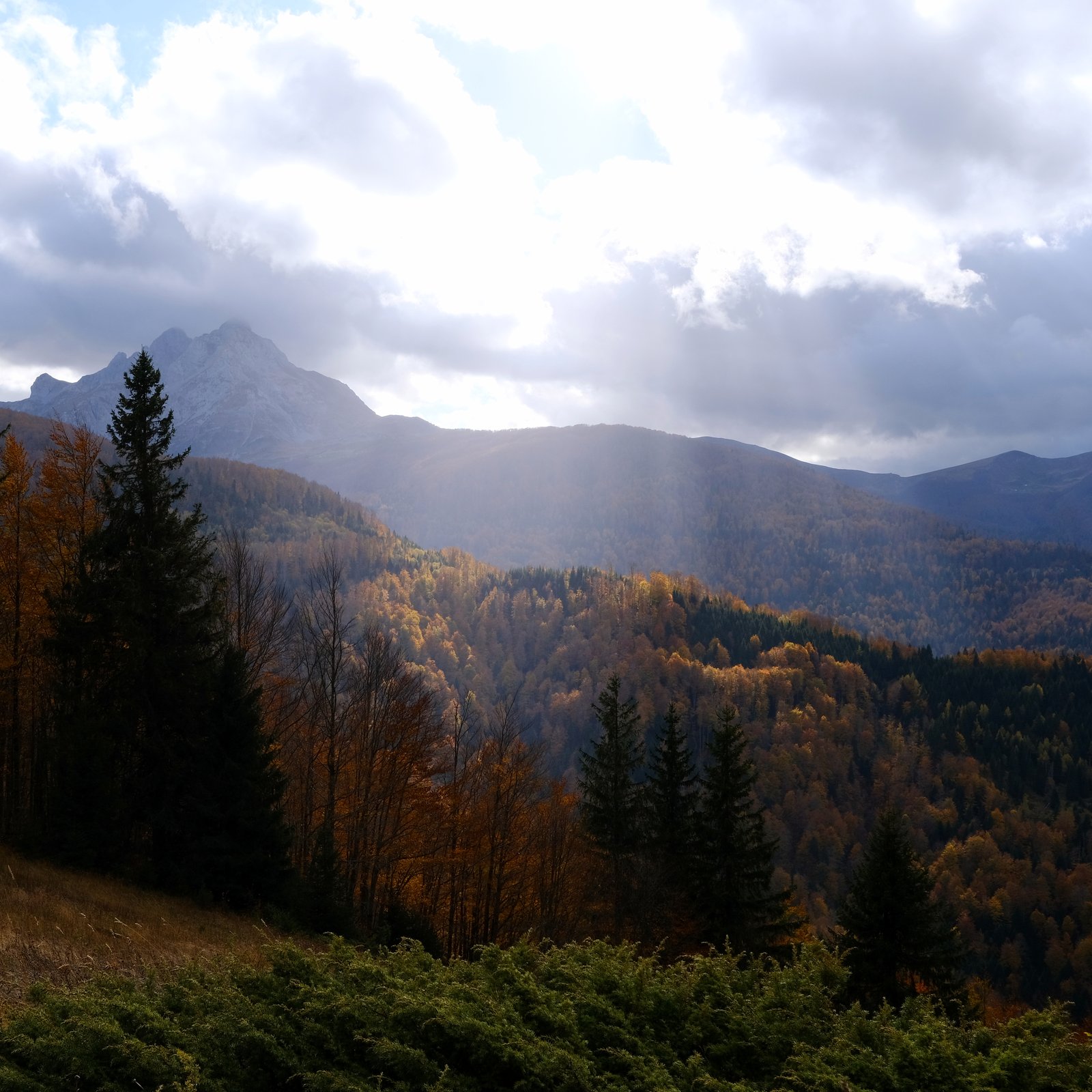
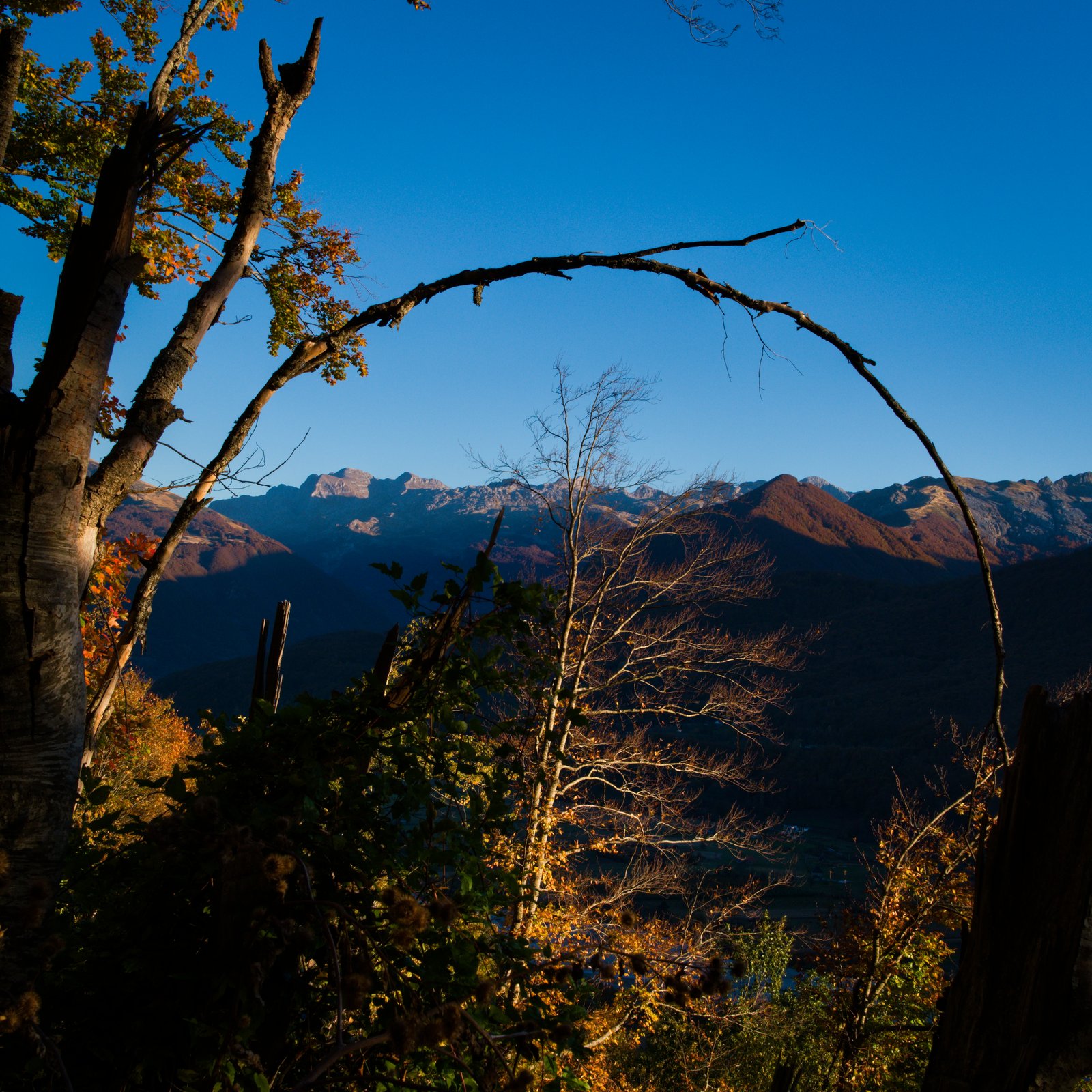
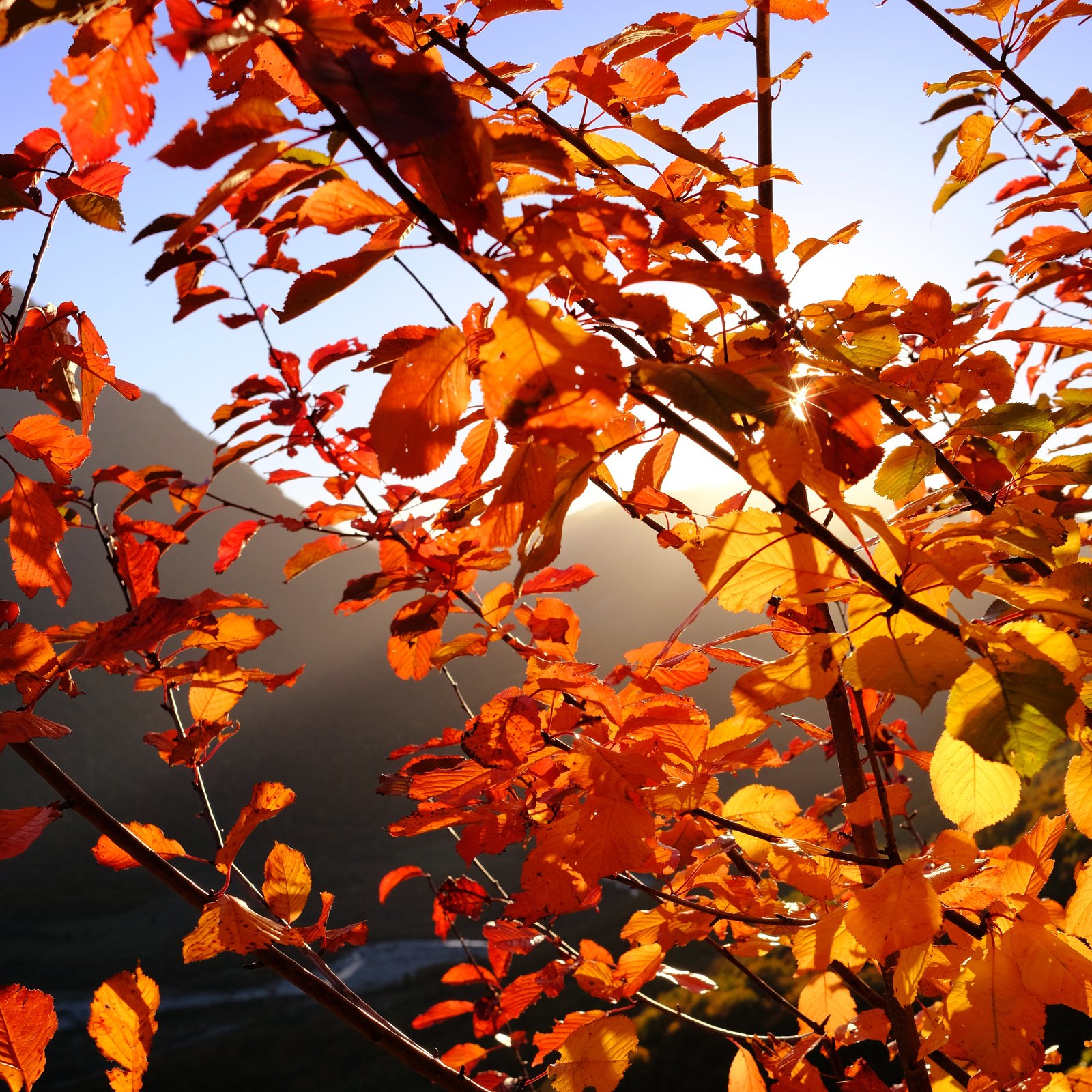
Walking out of western-Europe and into the Balkans had already felt like stepping back in time, but crossing into Albania felt like running back into the middle of the twentieth century.
At the checkpoint on the Montenegrin side our passports were scanned quickly and we were saying doviđenja to Crna Gora. 30 seconds later — at the Albanian checkpoint — an older guard chatted to us at length, un-phased by our inability to understand a word he was saying. His younger colleague, sat behind desk, carefully copied all our passport details into a double-wide, paper ledger, and with a sceptical look, asked what accommodation we had booked. I said we’d be staying in Vermosh, in truth we stashed ourselves in the forest just a short ways from the border.
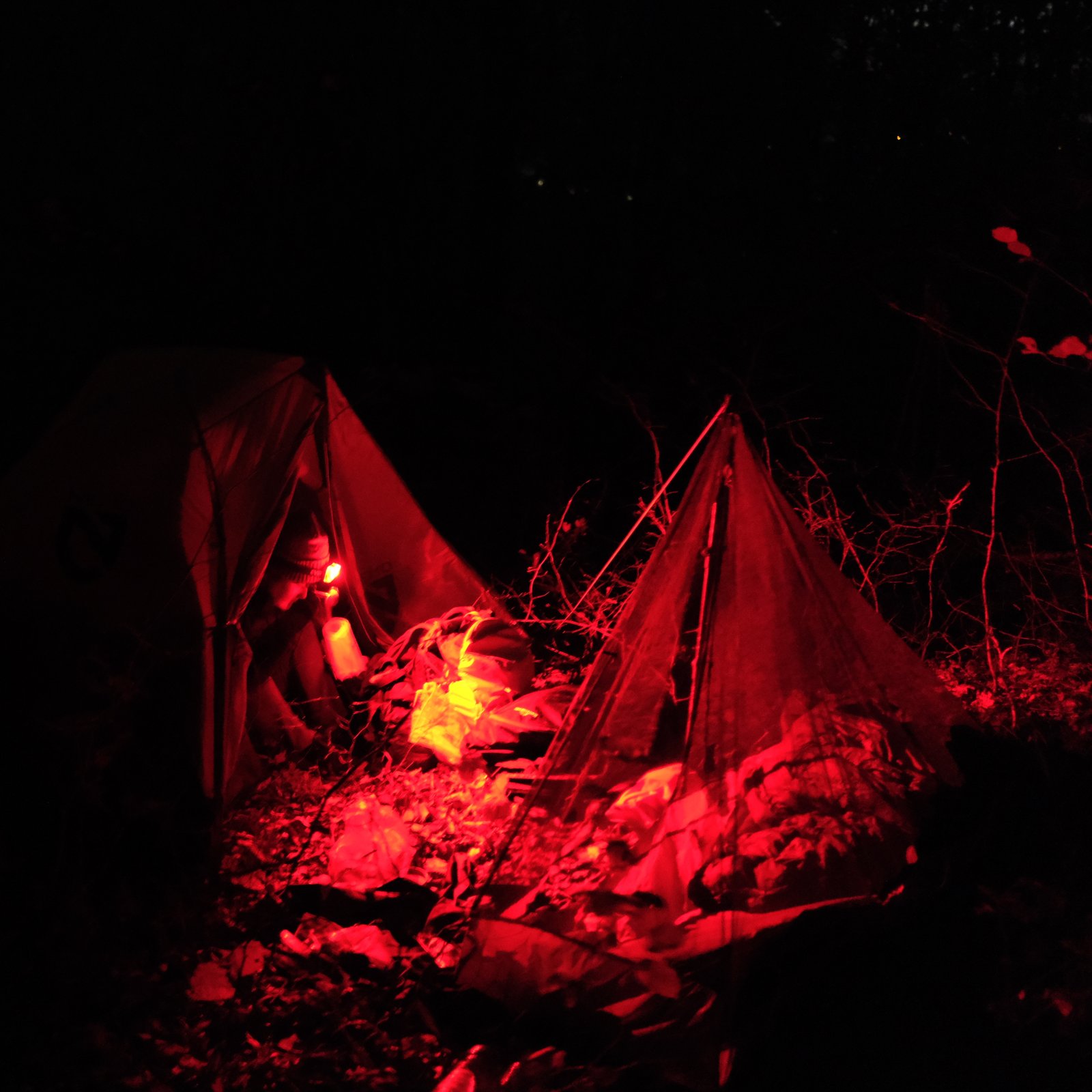
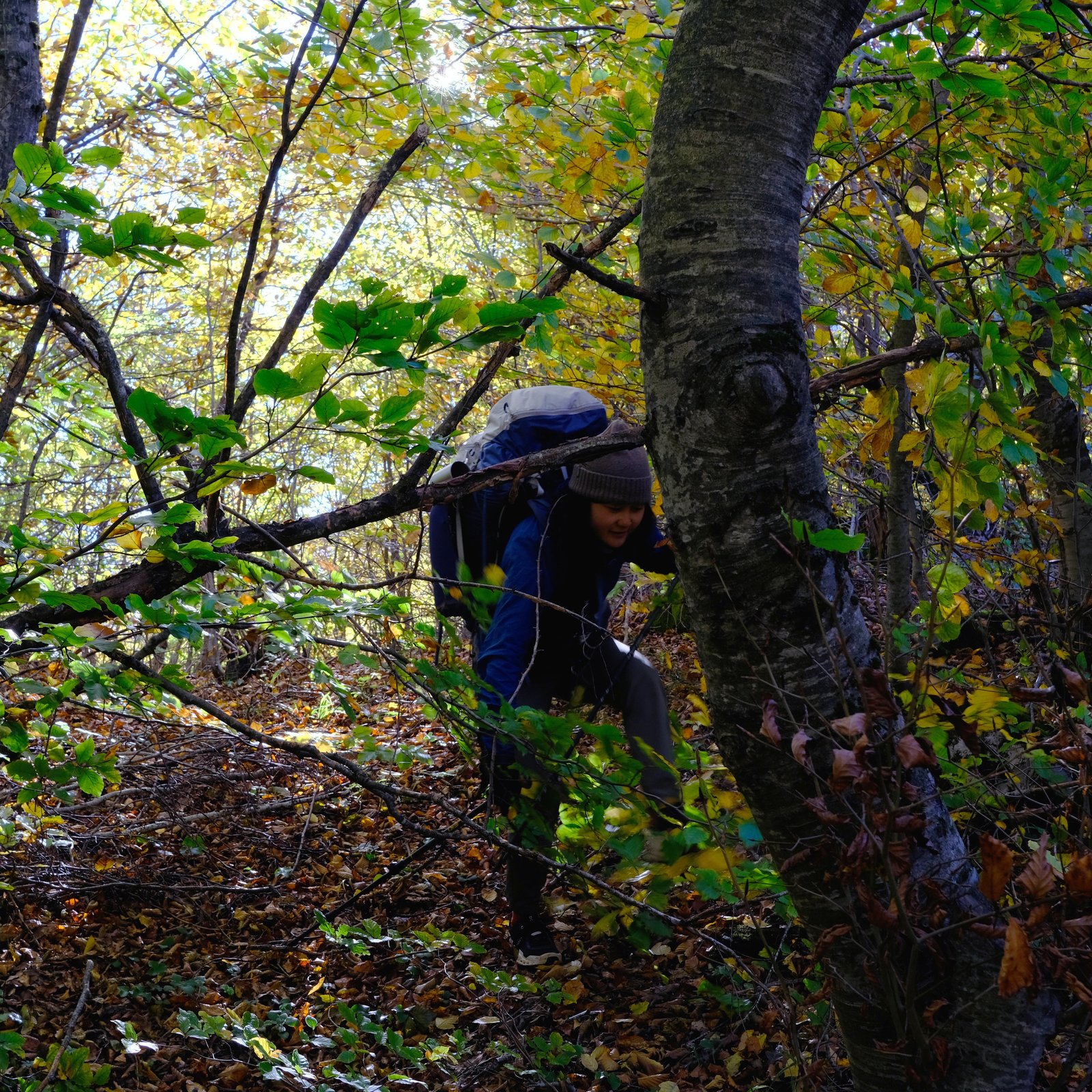
If analog immigration was the first thing we noticed, bunkers were the second. The bunkers in Albania seem endless. Within a half hours walk the following morning I had stopped counting altogether, every hill and field is dotted with these pillbox style fortifications. 170,000 of them — though some claim many more — all built under the paranoid direction of Enver Hoxha, dictator of Albania from 1944 until his death in 1985.
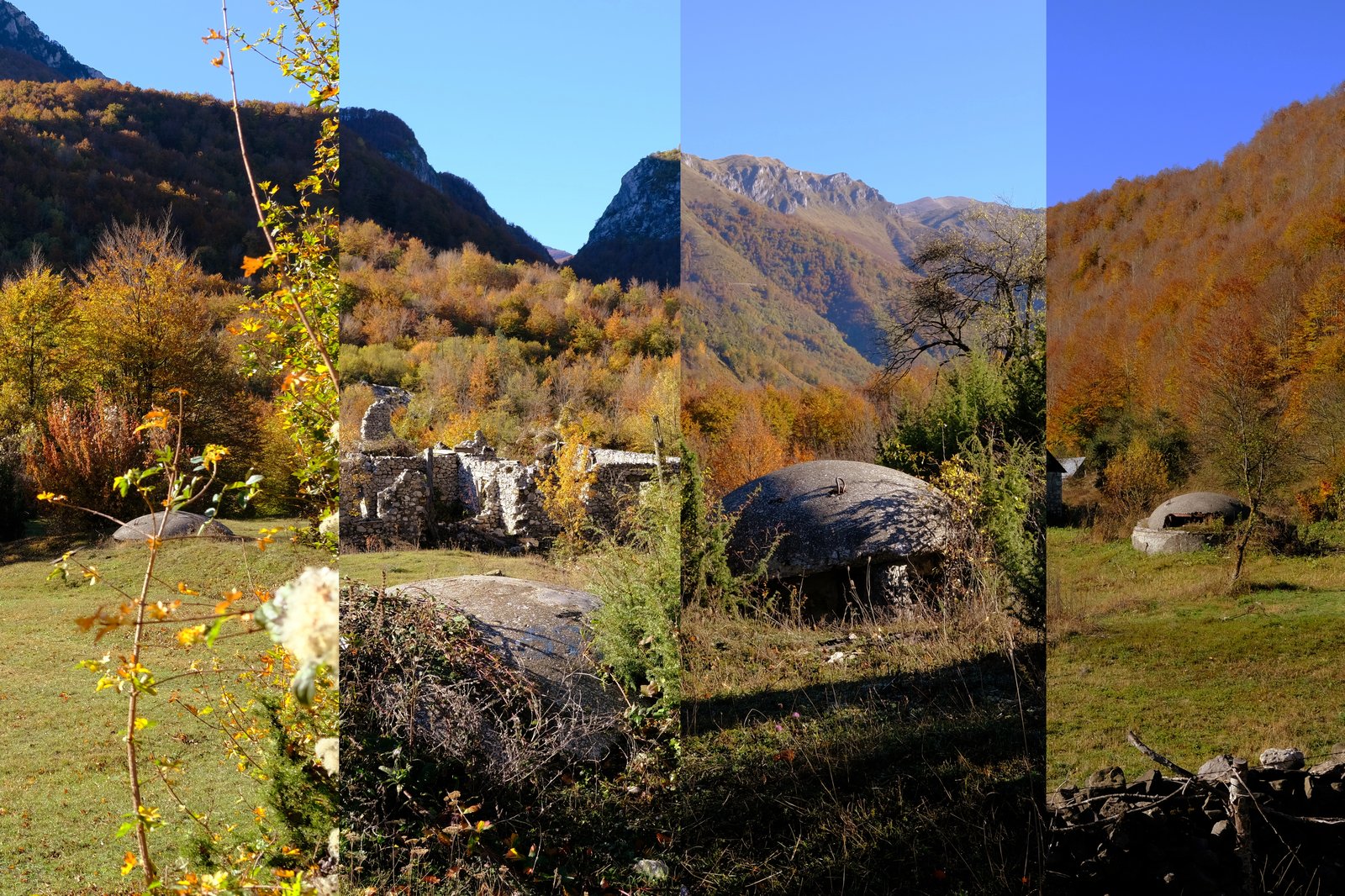
We had planned to cross a few more mountains and finish in Theth, but the weather was set to turn again and Mizuki was suffering from foot pain, which made two more days of 3000m+ of elevation a gnarly looking prospect. I was glad to have reached Albania and more than happy to pause my cartographic scribble there for the year.
Still, it did feel strange to finally come off my feet.
The highway was winding, quiet, and narrow, rising steeply to the right and falling away sharply to the left. With nowhere to stand and hitch except in the road itself, we kept walking south to keep ourselves warm, following a tributary of the Vermoshi river, while the early morning sun peaked out from behind the mountains.
Our first hitch in Albania — a dark, 30 year old Mercedes with heavily tinted windows — came hurtling round a bend before stopping in the middle of the highway. A grinning man of 36 popped out of the driver’s side and introduced himself as Miri.
“Shkodër?” I asked.
“Selcë!” he said.
I didn’t know where that was, but it didn’t much matter, there being only one road. Miri was a local — unlike the few other cars that had passed us, all with Montenegrin plates. As he drove he pointed out the villages along the way, and would stop again and again in the middle of the road just as soon as I reached for my camera, proud to show off the beauty of his home.
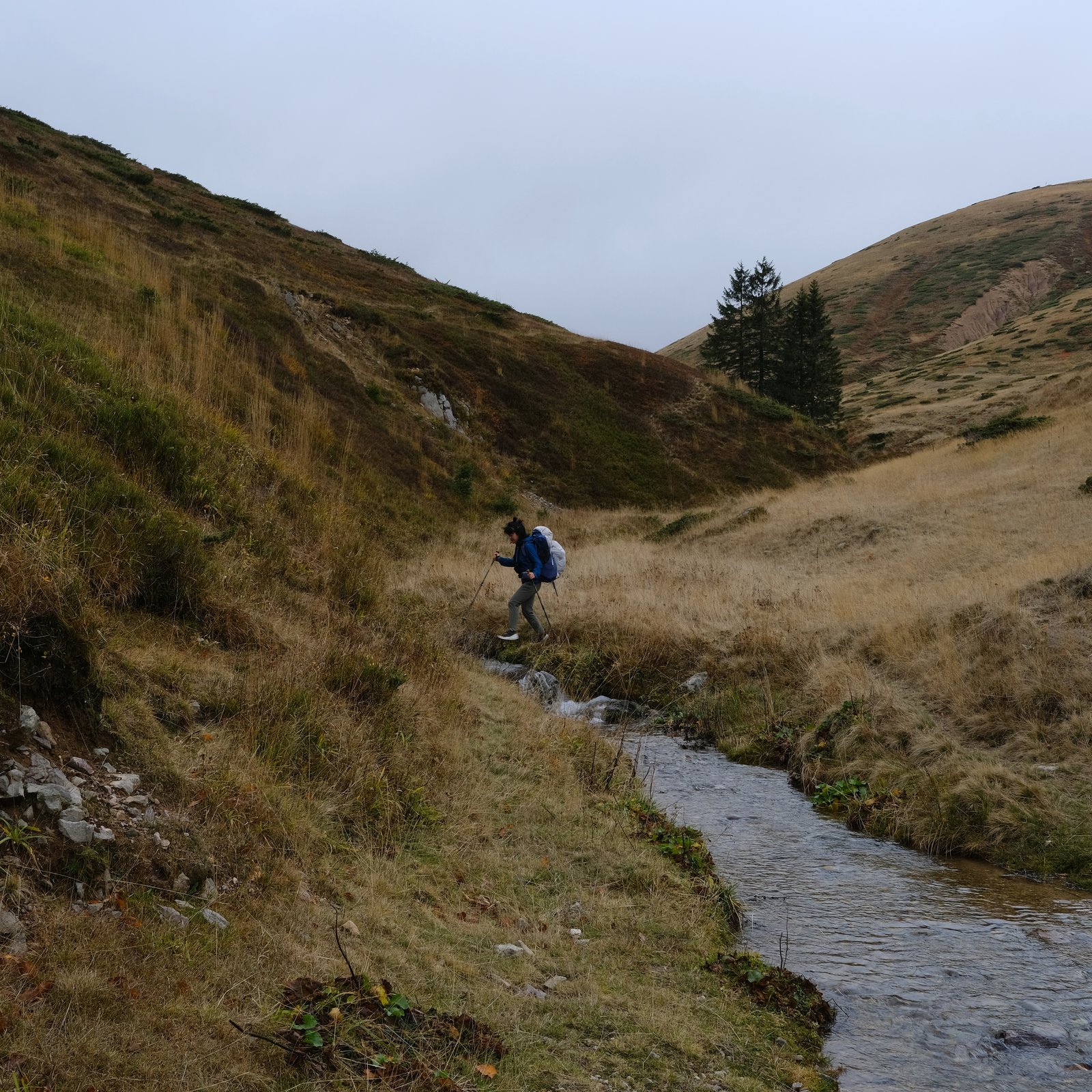
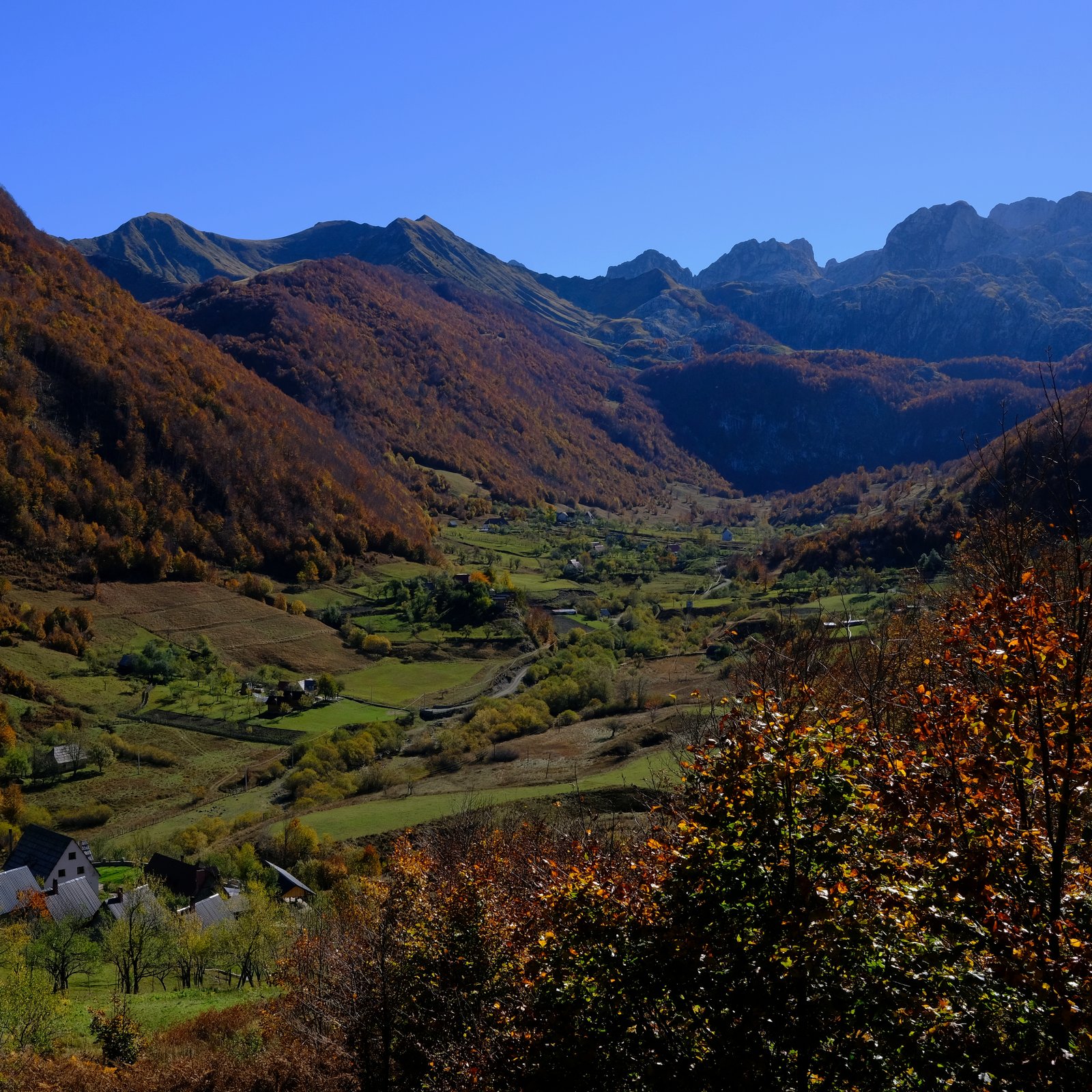
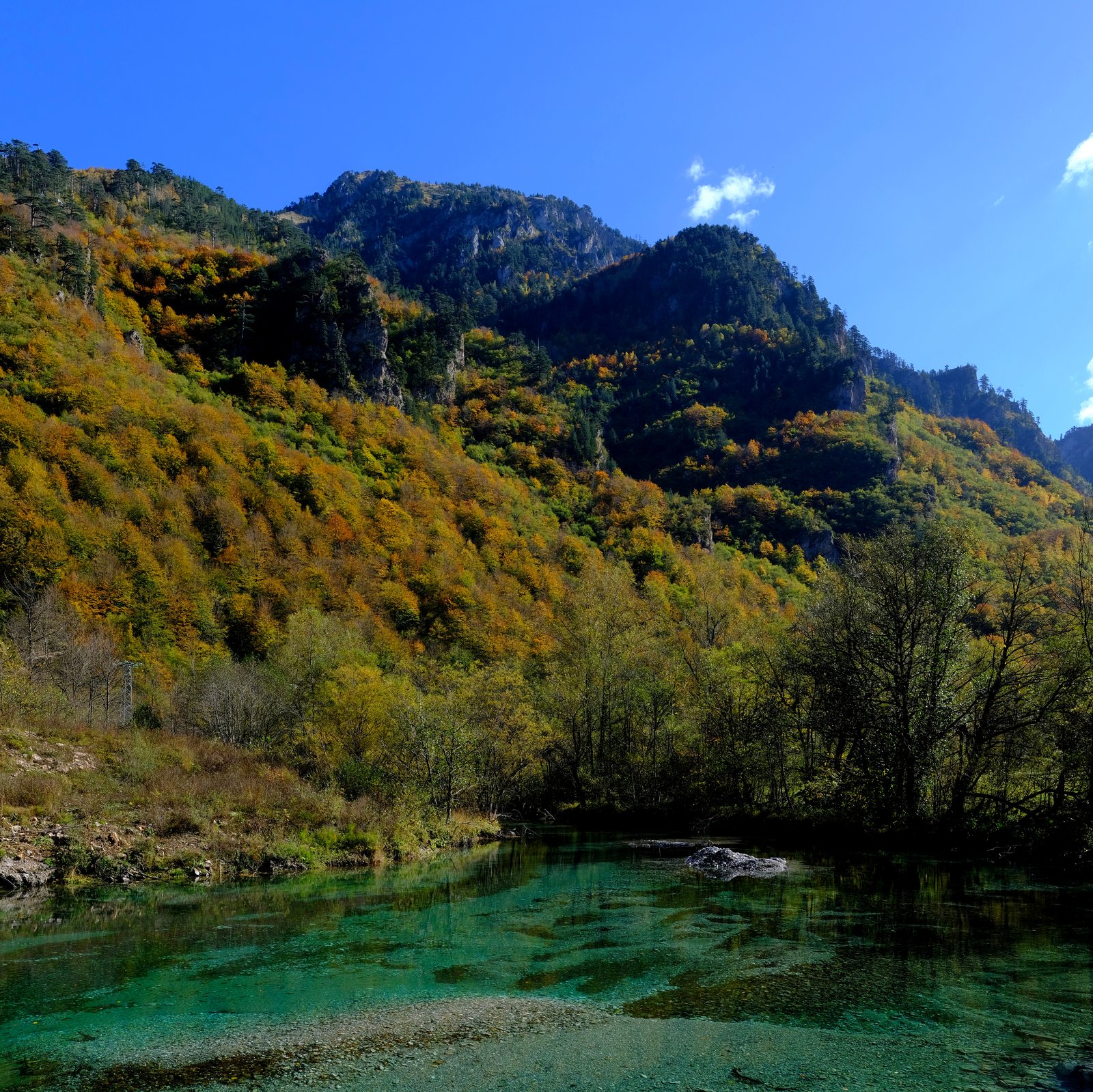
In the passenger seat was another man, much older; the little language we shared not quite sufficient to settle whether this was Miri’s uncle on his mother’s side, or his half-sister’s father. At some point the older man made a mute gesture, pointing back behind us and, before we knew what was what, Miri was reversing up the state highway, back to a building we’d just passed. The quiet passenger of indeterminate relation was keen to buy us drinks, first offering Raki, we settled on espressos, while he and Miri drank beer, at 10am, on the highway.
Raki being a spirit, usually made from grapes in Albania, different from the plum or apple that is more common in Croatia, Bosnia, and Montenegro.
Already I was sure that I would like the people of Albania, but the language is intimidating. Initially it sounded a bit like Italian, but the words are looooooong, there seem to be almost as many ümläüts as vowels, the grammar seems kinda intense, oh and there’s an extra 10 letters in the alphabet. But we chatted well enough and before long we were in Selcë. Miri did offer to drive us all the way to Shkodër — for the eye-watering sum of fifty euros… so we returned to the side of the road.
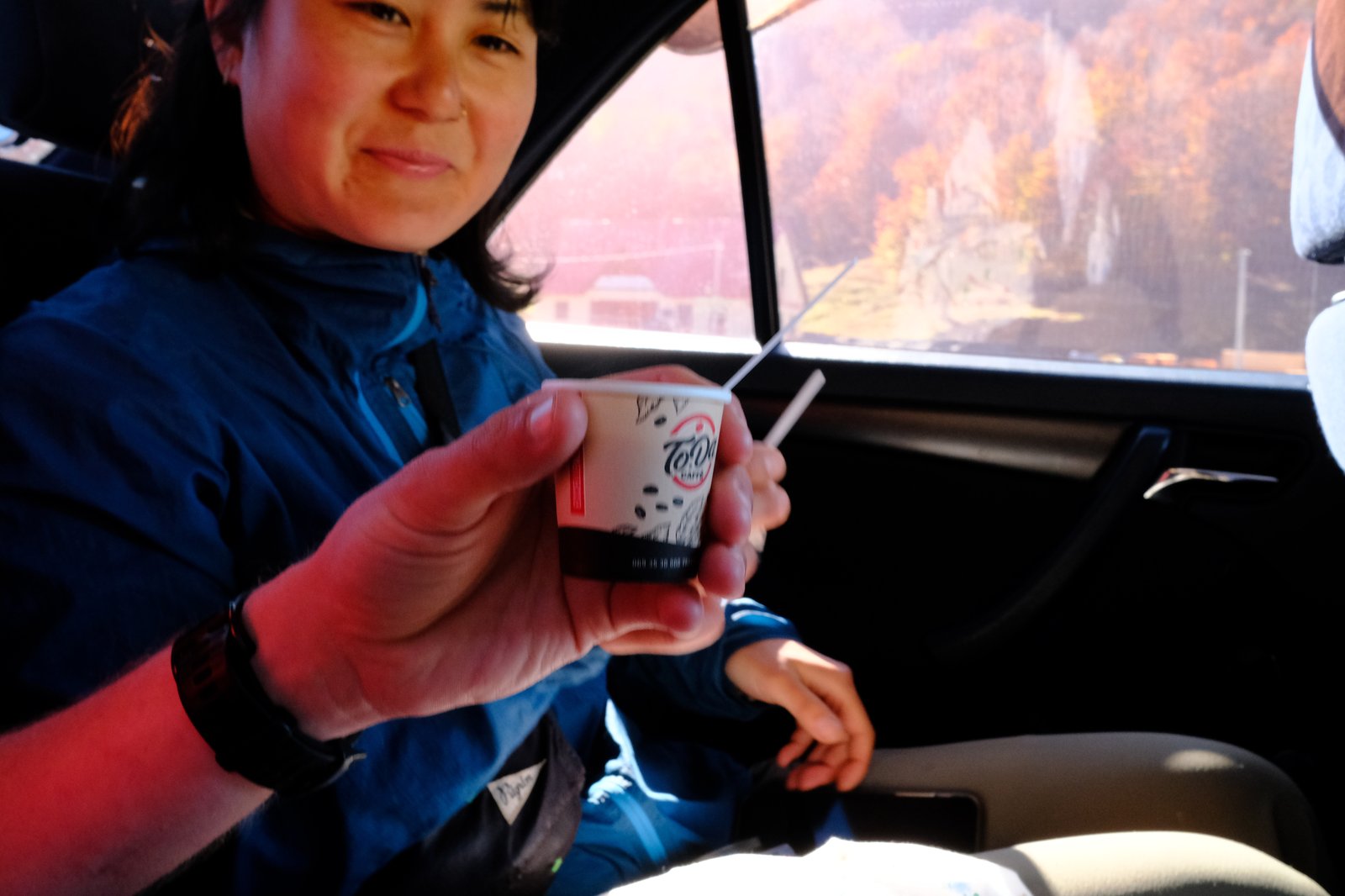
Our second hitch came almost immediately after saying thank you (faleminderit) and goodbye (mirupafshim) to Miri. Elvis, who — according to Beans — was quite handsome, got us another ten minutes or so to the next town in the valley.
We waited in the shade of olive trees at the roadside for a long time before a third hitch — another Mercedes, Albanians really love ‘em — materialised. Like Elvis, Zef spoke only Albanian and Italian, but I don’t remember if we talked much, all I remember is how savagely hot it was in his car. Every now and then Zef, with sweat beading on his bald head, would reach toward the dash and fiddle the fan dial, to no avail — a sort of non-verbal communiqué of our sweaty plight. And this was to be the longest of the days three hitches, taking us almost all of the way to Shkodër. Our only (brief) reprieve from the heat came when Zef pulled over at the top of the Rrapsh Serpentine, the spectacularly winding road that had just lifted us out of the Cemi valley, before the long descent to the coast.



I can’t remember if I had any expectations before reaching Shkodër but it surely didn’t disappoint. Zef stopped just outside the city itself so and, after pouring ourselves out of his car, Mizuki and I walked the last hour under the hot sun to cool ourselves down. Walking into Shkodër was lively — Mizuki called it chaos, which is probably why I liked it so much. Traffic and pedestrians played an endless game of chicken. The ‘right of way’ belonged to whoever was feeling most confident, whether a little ol’ lady or a ten tonne truck.
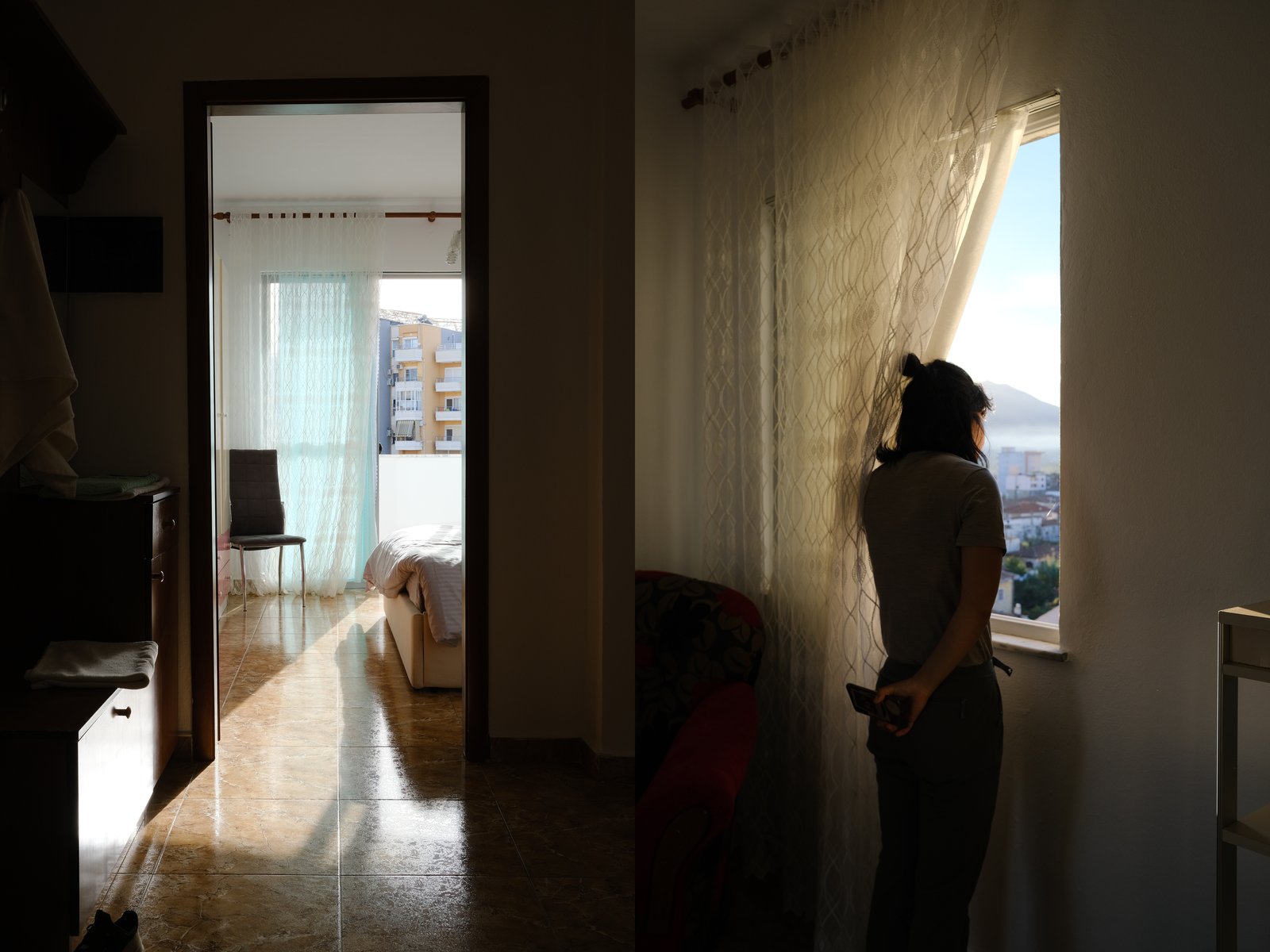
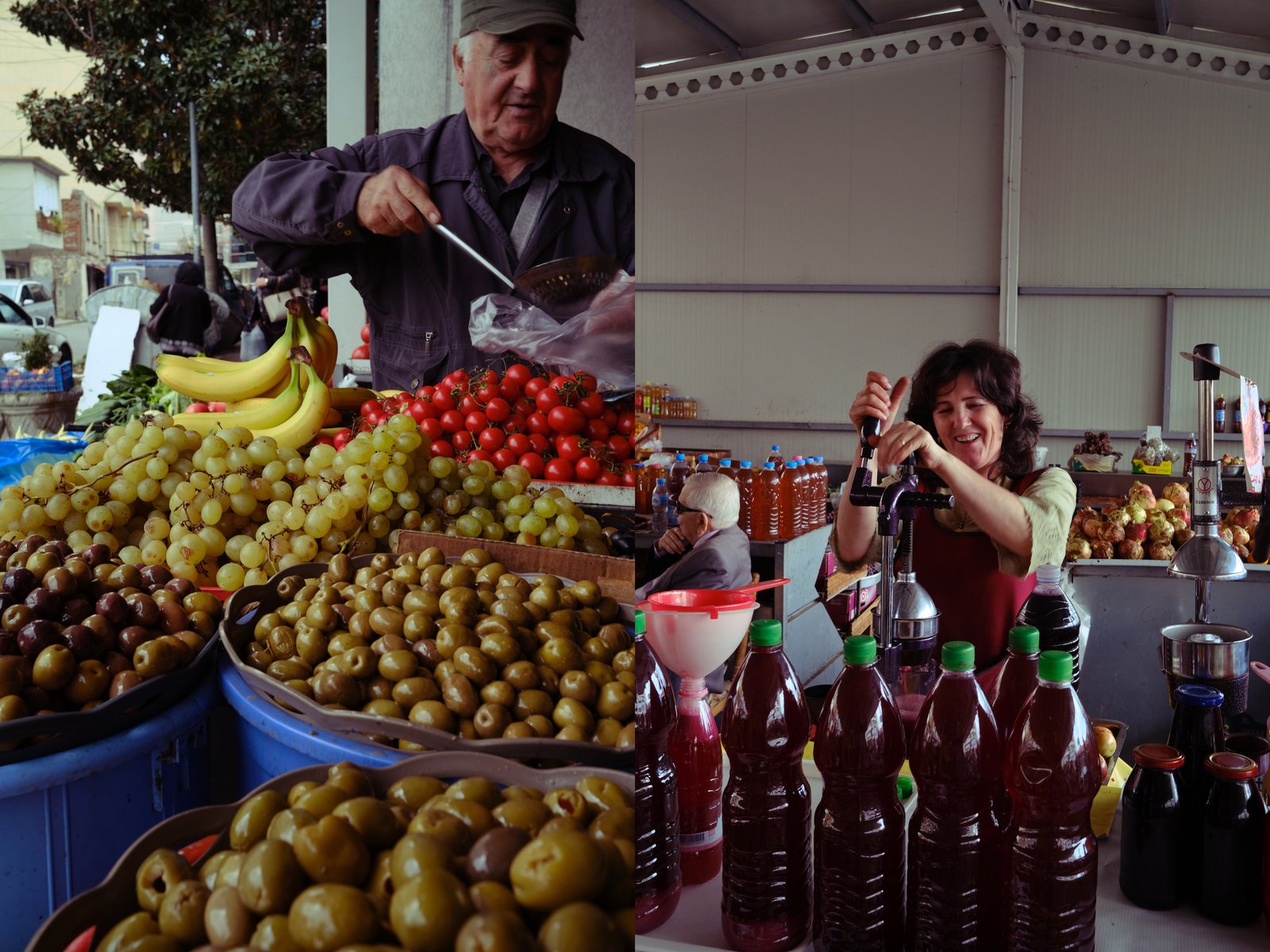
Shkodër, in all it’s frenetic beauty, will linger in our memories for a long time — even if it was only intended as a stopover en-route to a place that would come to mean infinitely more to us.